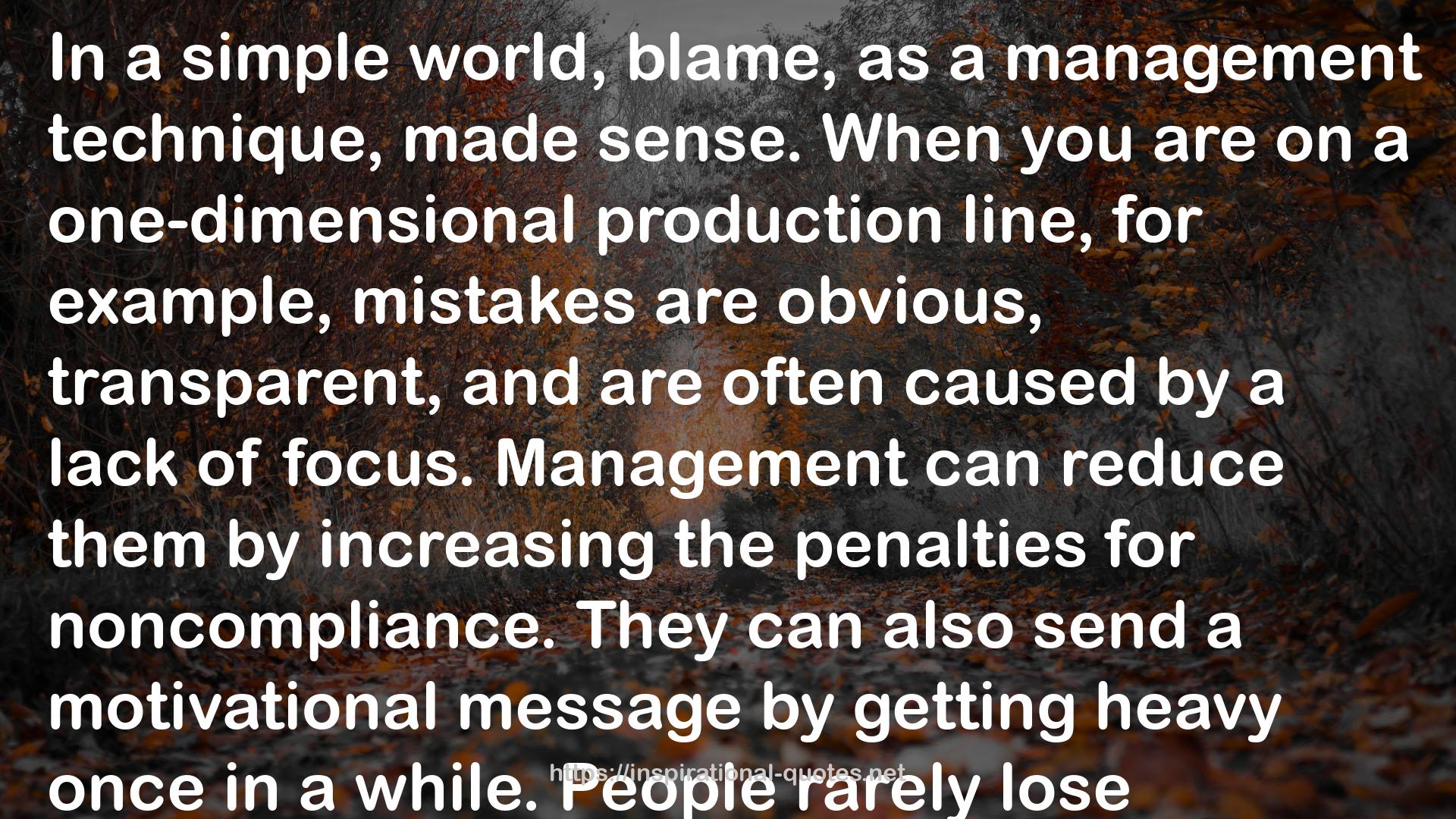" In a simple world, blame, as a management technique, made sense. When you are on a one-dimensional production line, for example, mistakes are obvious, transparent, and are often caused by a lack of focus. Management can reduce them by increasing the penalties for noncompliance. They can also send a motivational message by getting heavy once in a while. People rarely lose concentration when their jobs are on the line. But in a complex world this analysis flips on its head. In the worlds of business, politics, aviation, and health care, people often make mistakes for subtle, situational reasons. The problem is often not a lack of focus, it is a consequence of complexity. Increasing punishment, in this context, doesn’t reduce mistakes, it reduces openness. It drives the mistakes underground. The more unfair the culture, the greater the punishment for honest mistakes and the faster the rush to judgment, the deeper this information is buried. This means that lessons are not learned, so the same mistakes are made again and again, leading to more punitive punishment, and even deeper concealment and back-covering. "
― Matthew Syed , Black Box Thinking: Why Some People Never Learn from Their Mistakes - But Some Do
